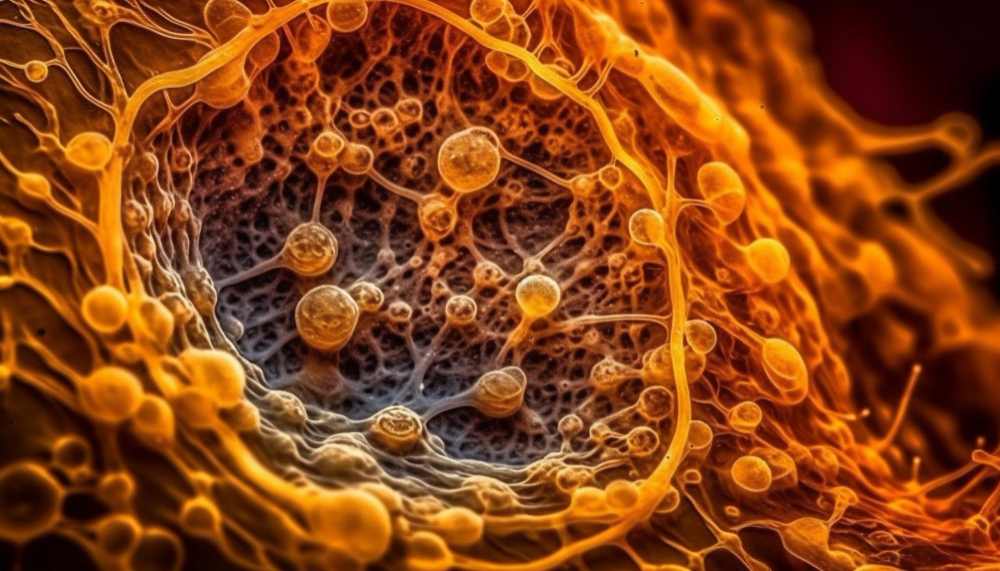What is endometriosis?
According to NHS (https://www.nhs.uk/conditions/endometriosis/) endometriosis is a condition where tissue similar to the lining of the womb starts to grow in other places, such as the ovaries and fallopian tubes. Endometriosis can affect women of any age. It’s a long-term condition that can have a significant impact on your life, but there are treatments that can help.
Scientifically speaking (https://en.wikipedia.org/wiki/Endometriosis) Endometriosis is a disease of the female reproductive system in which cells similar to those in the endometrium, the layer of tissue that normally covers the inside of the uterus, grow outside the uterus. Most often this is on the ovaries, fallopian tubes, and tissue around the uterus and ovaries; however, in rare cases it may also occur in other parts of the body.

What are Endometriosis Symptoms?
Pelvic pain, heavy periods, pain with bowel movements, and infertility are some of the Endomitriosis symptoms. Nearly half of those affected have chronic pelvic pain, with pain occurring in 70% of cases during menstruation. Pain is also common during sexual intercourse. Infertility affects up to half of those who are affected. About 25% of people have no symptoms, and 85 percent of those seen in a tertiary centre for infertility have no pain. Endometriosis can have social and psychological consequences.
So, to sum-up, Endomitriosis main symptoms are the following:
- Lower tummy or back pain (pelvic pain) – usually worse during your period pain that prevents you from doing your normal activities
- Sex-related pain during or after sex
- During your period, you may experience pain when peeing or pooing
- During your period, you may experience nausea, constipation, diarrhea, or blood in your pee.
- Having difficulty getting pregnant
- You may also experience heavy periods. You could bleed through your clothes if you use a lot of pads or tampons.
- Lower tummy or back pain (pelvic pain) – usually worse during your period pain that prevents you from doing your normal activities
- Sex-related pain during or after sex
- During your period, you may experience pain when peeing or pooing
- During your period, you may experience nausea, constipation, diarrhea, or blood in your pee.
- Having difficulty getting pregnant
- You may also experience heavy periods. You could bleed through your clothes if you use a lot of pads or tampons.
Does Endometriosis cause infertility?
Infertility is a common endometriosis symptom. Some people only discover they have the condition when they have trouble getting pregnant. Endometriosis can cause infertility in up to half of women, but researchers are not really sure why. Infertility can affect up to 30% to 50% of women who have endometriosis. Endometriosis can affect fertility in a variety of ways, including distorted pelvic anatomy, adhesions, scarred fallopian tubes, inflammation of pelvic structures, altered immune system functioning, changes in the hormonal environment of the eggs, impaired pregnancy implantation, and altered egg quality.
The precise cause of infertility in women with endometriosis varies from person to person. Multiple causes are involved in some cases. Among the most common are:
- Cysts of the ovaries: Endometriosis can spread to the ovaries, resulting in cysts. Endometriomas, unlike other ovarian cysts, can cause infertility by either blocking the release of an egg from its follicle or the passage of the egg into the fallopian tube.
- Adhesions: Tissue overgrowth can result in adhesions. Adhesions are scars that form between body tissues and cause them to stick together. This can prevent an egg from reaching the uterus from the fallopian tube or sperm from reaching the egg.
- Egg quality: Endometriosis has been linked to lower egg quality in the ovary, according to research.
- Pain while having sex: Pain during sex is a common symptom of endometriosis that can be alleviated.

Endometriosis staging and infertility
Endometriosis can be diagnosed and treated using laparoscopic surgery. It is important to note that even if endometriosis is ‘cleared,’ a woman may experience a relapse; thus, this approach should be used with caution so as not to damage the ovaries and thus the ovarian reserve or blood flow to the ovaries in women who want to have children.
- Stage 1 (minimal)
- Stage 2 (mild)
- Stage 3 (moderate)
- Stage 4 (severe)
Your doctor may refer to the stage of the disease when diagnosing endometriosis. The severity of your condition is described by staging, which is based on the location, amount, and depth of tissue overgrowth. Endometriosis is classified into four stages, as it is mentioned before, with stage 1 being the mildest and stage 4 being the most severe.
Women in stages 1 and 2 are more likely to conceive than women in stages 3 and 4. However, this is not always the case.
In some cases, women in stage 1 may have more difficulty becoming pregnant than women in stages 3 or 4. The risk is largely determined by which organs of the female reproductive system are affected and how they are affected.
Planning is one area where staging can be beneficial. A woman with stage 1 or 2 endometriosis, for example, may try to conceive on her own at first, whereas someone with stage 3 endometriosis may not.
What are your chances of getting pregnant with endometriosis?
Endometriosis patients can still conceive, but it may take longer or be more difficult. According to the American College of Obstetricians and Gynecologists, endometriosis affects nearly 40% of infertile women (ACOG).
Some women with endometriosis have no trouble conceiving, while others require assistance. Because it’s difficult to predict which group you’ll fall into ahead of time, you and your partner should begin by attempting to conceive naturally.
When should you consult your doctor if you’re having problems? In general, couples with a woman under the age of 35 should seek help after a year of trying to conceive, while couples with a woman over the age of 35 should seek help after six months.
If you are having difficulty conceiving, your doctor will conduct a basic evaluation to determine your fertility. If your doctor suspects you have endometriosis, he or she may recommend a procedure to examine the abdomen and, if endometriosis is found, try to remove or damage the growths in order to improve fertility and reduce pain.